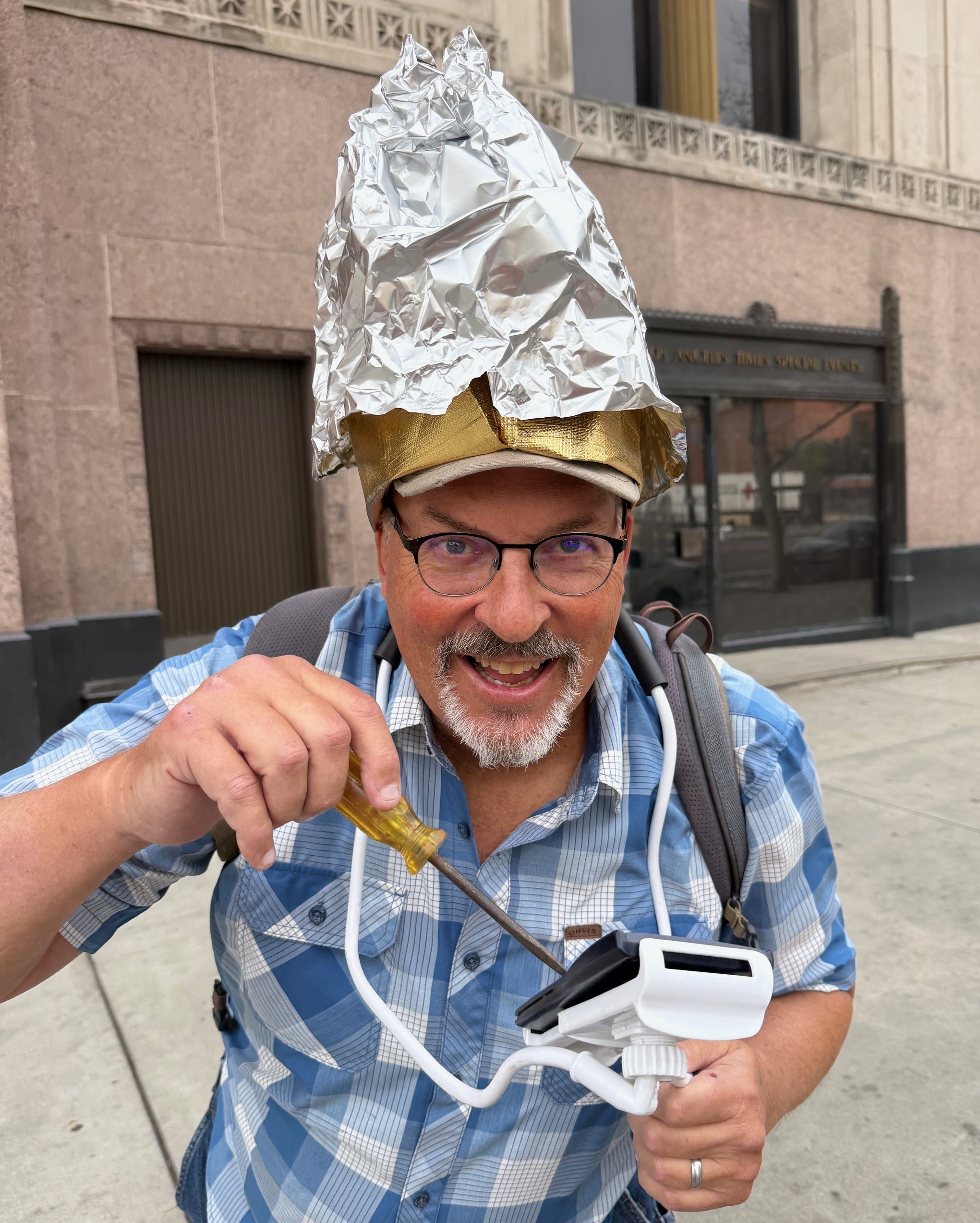This is the fourth installment of Streetsblog Capitol Hill’s series on key governor’s races. Earlier we brought you stories about a candidate who likes bikes but isn’t sure about transit in Tennessee, the choice between light rail and bus rapid transit in Maryland, and how bike paranoia is cutting the GOP off at the knees in Colorado. Here we turn to Texas.
Let's not sugar-coat this. Rick Perry, already the longest-serving governor in Texas history, is almost certainly going to win an unprecedented third term. And that’s bad news for people hoping for a shift away from autocentric transportation planning.
Perry is running against Democrat and former Houston Mayor Bill White. White has challenged some of Perry’s more ill-conceived road-building projects and has some nice things to say about high speed rail, but he’s no banner-waving reformer.
“Throughout his administration, it was apparent that he was fine with people wanting trains, but he himself does not see them as an important priority,” said Andrew Burleson, who writes the transportation and planning blog neoHOUSTON. “To him, the purpose of democracy is to let people vote for frivolities if they wish, but his job as mayor was to keep cars moving.”
For example, Burleson said, White talked a good game about promoting transit, but he effectively blocked a metrorail extension bill that would have added 40 new miles of light rail to the seven miles already in the system. White’s administration insisted on 12-foot-wide traffic lanes on every street. Aside from the huge additional expense, Burleson said, “You don’t want that on a pedestrian-heavy street. Cars will drive too fast.”
White told Grist that he's in favor of "removing barriers" to people who want to walk to work, but that he wouldn't push walkable urbanism from the state level. He wants to reform TxDOT by decentralizing power to give local jurisdictions more of a say in where the money goes. He criticizes Perry’s road-building binge, mostly because the state had to take on billions of dollars in debt to do it. Texas, under Perry, has built more roads in the last 10 years than any other state – a fact Perry touts every chance he gets.
White also criticizes Perry’s controversial attempt to privatize of toll roads, which would have paid billions to design, build and finance State Highway 121. The legislature blocked the deal. Perry says he’ll keep fighting for it if reelected. White says he would have applied for federal high speed rail funds, “rather than losing those dollars by default to Florida and California.” He says the congested I-35 corridor, which goes north from Mexico, is a prime candidate for rail. Perry has pushed to widen the highway.

Perry was also the architect of the Trans-Texas Corridor plan, a mega-construction mission currently underway (albeit in slightly downsized form). The plan is to create a corridor up to a quarter of a mile wide with separate rights-of-way for trucks, passenger cars, freight rail, oil and gas pipelines, and high speed rail.
While Burleson of neoHOUSTON acknowledged the need to deal with the high volume of trucks from Mexico and that the rail additions would be welcome, “The vision for execution was asinine,” he said. “With a quarter-mile right of way, it can’t be remotely close to any city, so they planned these major corridors 50 to 60 miles outside of major cities. For passenger rail? Are you kidding me? If you need to drive 50 miles to the station and then another 50 miles once you get there, you’ve already driven half the distance. You might as well just drive the whole way and have your car when you arrive. Any passenger rail should be directly city to city.”
White ran a political ad blasting the Trans-Texas Corridor project. "Rick Perry said he loves private property rights until he wanted to take people's homes and family farms," the ad states. "Perry would bulldoze half a million acres of private land and give it to a Spanish company to build toll roads and let the company set the tolls.”
Rick Perry also earned the wrath of reformers by vetoing a wildly popular bill to protect vulnerable road users. “The bill passed both houses by veto-proof majorities—25-5 in the Senate and 140-5 in the House with one absence—but with the legislative session over, the veto most likely will not be overridden,” lamented Houston Tomorrow, a nonprofit that works on urban issues in the region.
The bill, similar to recently enacted laws in Delaware and New York, requires drivers to maintain a safe passing distance near pedestrians, highway construction and maintenance workers, stranded motorists, and bicyclists, and increases penalties for motorists who cause injuries to vulnerable road users.
In his veto statement, Perry showed his complete disregard for the safety of these people and for the concept of complete streets. He said vulnerable users “already have operation regulations and restrictions in statute” and pointed out several responsibilities that they have, but none of the rights. He rejected the idea of requiring “specific actions by operators of motor vehicles.” And he resisted the implication that motorists should be assumed to be at fault in collisions with pedestrians.
Bill White is known for a "my way or the highway" style of governing -- but at least he'd rein in some of Perry's highway spending. Not that he's likely to get the chance -- Perry has maintained a solid eight point lead, and many Texans have tuned out of a race not expected to bear any surprises.







